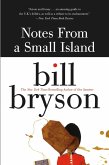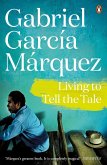But, while restoring his health, he also loses most of his eye-sight. In 1994 he is diagnosed with CMV retinitis in 1994 and becomes legally blind. The diagnosis devastates him because it takes away his passion and livelihood--photography.
Fortunately, he is able to prove that he can photograph again. First challenge is to finish the 1999 calendar for the Asian/Pacific Crossroads. Many challenges later, after attending low vision technology studies at the California Braille Institute and experimenting with his new special equipment, Weston realizes that he can, indeed, photograph. With the help of organizations like the Foundation for Junior Blinds (now known as Junior Blind of America) and California Department of Rehabilitation, he purchases special equipmenthandheld telescope, special magnification glasses, and magnification and reading software programsnecessary for him to continue his work.
Weston is a firm believer that a person can work through a situation, no matter how challenging, and use the experience to help others who find themselves in similar circumstances. This philosophy helps him work off the dilemmas in his own life, while giving his life a deeper sense of meaning.
From his perspective, Weston considers art a vehicle through which we can experience the nature of humanity. In today's society consumed by superficial realities, his art goes beyond the body and into a metaphysical dimension, connecting with the viewer on a more profound, spiritual level.
Kurt Weston's Blind Vision black-and-white series of self-portraits shows people the physical and emotional impact that visual loss can have on an individual. He prints his images on silver gelatin paper so that they can last forever. He wants future generations to be able to look at this work and say, "This was happening at this time in history and this is the impact it left on people who's lives it touched, this pandemic."
Dieser Download kann aus rechtlichen Gründen nur mit Rechnungsadresse in A, B, CY, CZ, D, DK, EW, E, FIN, F, GR, H, IRL, I, LT, L, LR, M, NL, PL, P, R, S, SLO, SK ausgeliefert werden.









